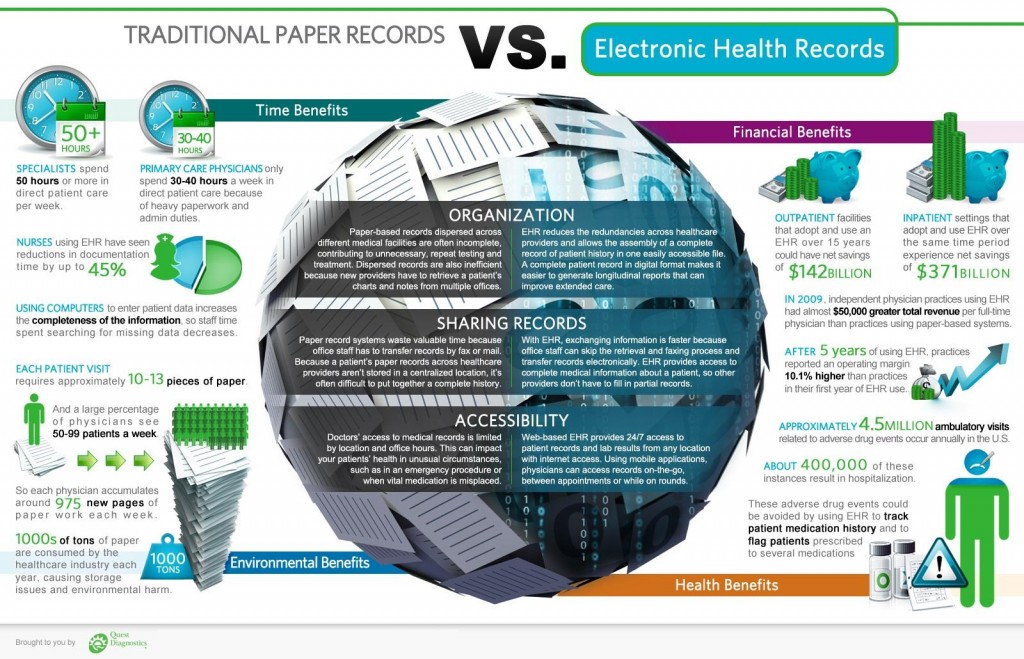 Either because of financial, legal or operational reasons, many companies including those in healthcare, are still stuck in the paper world when it comes to data and document management. Now that technology has become so much more advanced, switching to electronic health data format has a slew of advantages and benefits that can't and shouldn't be overlooked.
Either because of financial, legal or operational reasons, many companies including those in healthcare, are still stuck in the paper world when it comes to data and document management. Now that technology has become so much more advanced, switching to electronic health data format has a slew of advantages and benefits that can't and shouldn't be overlooked.
Here are just a few:
- Improved Privacy and Security. With HIPAA and the various privacy laws in effect, the use of paper documents for data management can be a slippery slope. It just takes one incident for important confidential information to get into the wrong hands. In contrast, by utilizing electronic health records makes this type of information much harder to obtain.
- Much More Efficient. By utilizing electronic health records, data can be processed much faster. In addition, it allows multiple users to view files simultaneously. That translates into increased productivity and accountability, which equates to turnaround requirements being more likely to be met. All of this is critical in the healthcare space, as in many instances time is of the essence.
- Lower Archiving Costs. Paper document management and archiving can become extremely labor intensive and expensive. The entire process of processing, storing and retrieving records can be done at a much more economical rate when performed electronically.
- More Uptime. With electronic health records there is monitoring and alert notifications available that in contrast aren't with paper records. With this in place, there is a much lesser probability of downtime, as now potential problems can be found and rectified quicker, and in some instances ahead of time.
- Data Recovery. In case of a disaster, such as an earthquake or tornado data that most likely would have been destroyed and never found now has the opportunity to be salvaged and recovered. That is because with EHRs multiple backups can be stored at offsite locations, which can provide a means of recovery.
- Enhanced Accuracy. By utilizing electronic health records in a healthcare facility provides Physicians and medical staff with much more accurate and up-to-date information. In addition to the accuracy the data is much more legible and complete, which makes its much more easier for the coding and billing departments.
- Less Errors and Safer Care. By having accurate information, patients can receive much better and safer medical care. That includes the increased ability to diagnose diseases quicker, reduce medical errors and most importantly improve patient outcomes.
- Better For Business. While electronic health records require investments in technology and time for training, a well-organized, fully functional EHR system can provide a business with a long-term positive return on investment. That includes places you wouldn't have initially thought of. For example, if your facility dictates notes you can reduce transcription costs as everything can be done electronically. In addition, facilities can now link appointments directly to progress notes and automate coding and claim procedures that in the past would all have to be done manually and require much more man-power.
There are so many instances where physicians are missing information during patient visits. From lab results to dictations and history's, these are all "headaches" that can be avoided by moving to electronic health records. By allowing this data to be more available, and more importantly, legible can hopefully help in saving more lives, as less mistakes now will be made.
As you can see, the pros definitively outnumber the cons when it comes to electronic health records. There's no question that this is where the future of data management lies.







